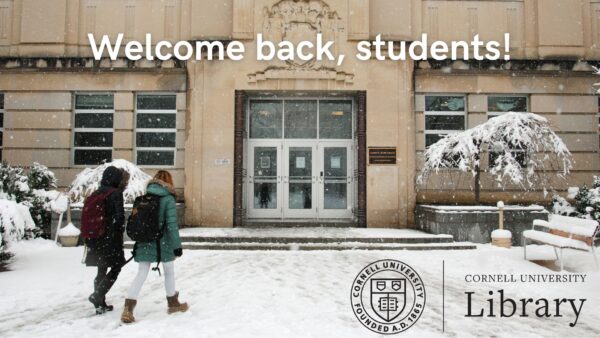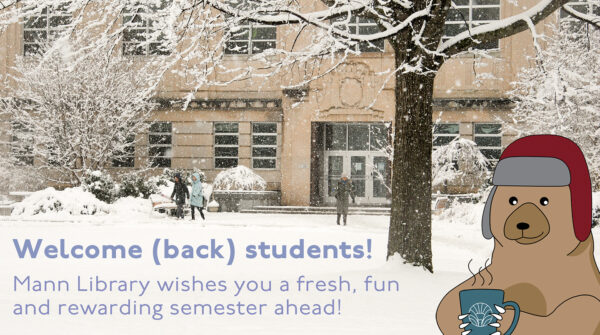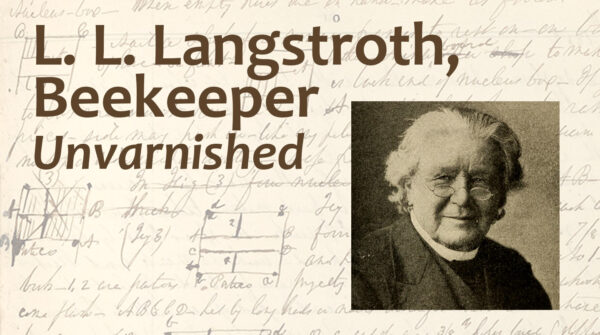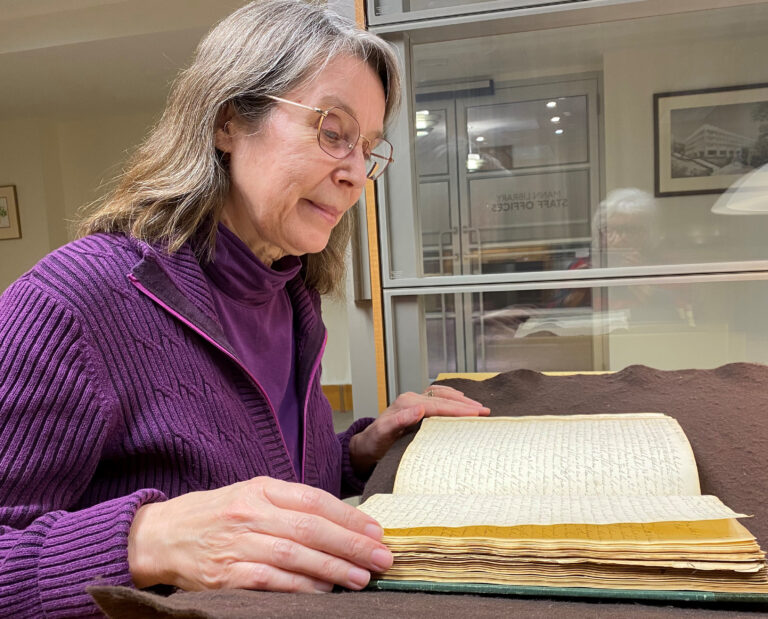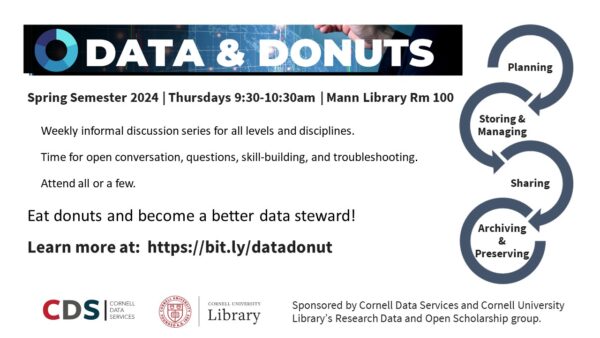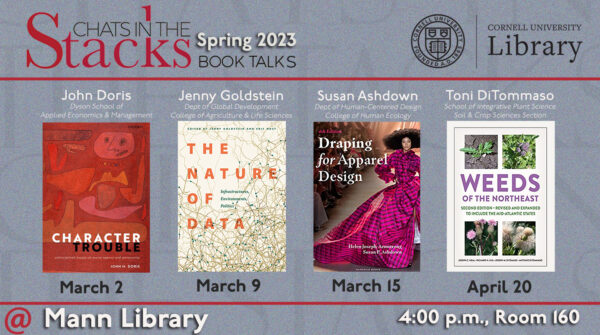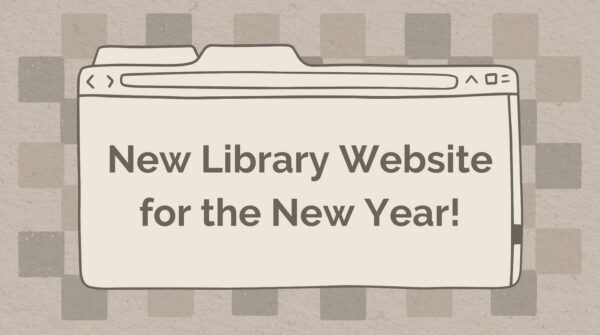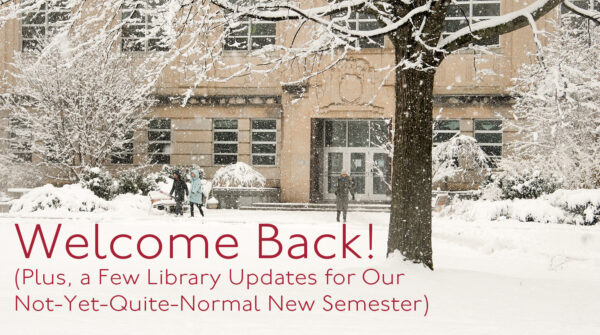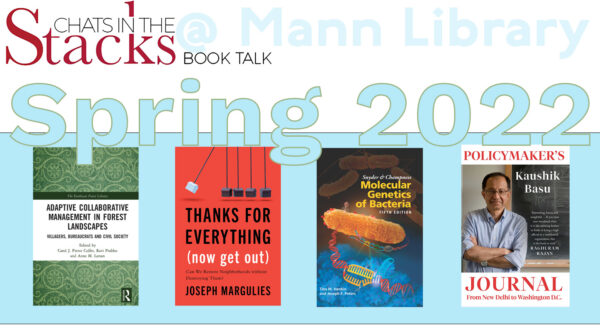Library workshops are a great way to level up your research skills, and did we mention they’re free?? Whether you prefer to attend in-person or virtually, we have options that will work for everyone’s schedule. We also have a wide selection of pre-recorded workshops that can be viewed asynchronously at your convenience: mann.library.cornell.edu/workshops. And you can always request a workshop by filling out our Workshop Request Form. This semester we’re excited to offer a selection of new offerings, including Introduction to Covidence and Python for All, as well as some of our most in-demand workshops, including Intro to QGIS and Power Searching. See the list below or view all available library workshops at spaces.library.cornell.edu/calendar/CULworkshops
Evidence Synthesis Workshops
Introduction to Systematic Reviews (hybrid)
Are you interested in working on a systematic review, scoping review, or meta-analysis but don’t know where to start? The library can help! In this workshop, we’ll show you how to get your evidence synthesis project off the ground with the most up-to-date guidance and time-saving tools.
NEW! Introduction to Meta-Analysis (hybrid)
Meta-analysis is a statistical procedure for combining the results from multiple studies in an effort to synthesize their findings. Potential benefits include increased power (over individual studies), improved estimates of effect sizes, and the ability to resolve uncertainty when research disagrees. Meta-analysis has become a popular tool for researchers in many fields. In this workshop, we will provide an introduction to the theory and statistical methods behind meta-analysis. Presented by the Cornell Statistical Consulting Unit.
NEW! Introduction to Covidence (virtual)
This workshop will introduce Covidence, a tool for managing systematic reviews and complex literature reviews. Covidence sorts your literature review into distinct phases, allowing you and your collaborators to sift through a large number of records and locate what’s relevant in an efficient and unbiased manner.
Power Searching: Developing a Search Strategy for Your Literature Review
Whether you’re new to searching academic databases or want help designing the most comprehensive search strategy possible, this workshop will help you get the most out of searching for academic literature.
Research Data & Open Scholarship Workshops
NEW! Python for All: Democratizing Coding Mastery with AI Chatbot Support (virtual)
We will utilize AI chatbots like ChatGPT, Bard, and Co-pilot to support the process of learning to code. Using Python as our teaching tool, participants will acquire skills that are transferable to other programming languages. We will explore how AI chatbots can be invaluable resources for understanding, writing, and refining code, as well as for facilitating transitions between different coding languages.
NEW! CLI Basics: A Beginners Crash Course
Are you new to the command-line interface or looking for a refresher? Look no further! Join us for an introduction to essential commands and tasks. We’ll dive into topics covering navigating and creating directories and files, using text editors for basic file editing, moving and removing files, and utilizing tools like pipes and grep.
Creative & DIY Workshops
NEW! Making with Data
Data physicalization, the practice of making tangible objects that encode and visualize information, can bring new dimensions to research by promoting deeper relationships between the practitioner and their data, as well as between the viewer and the data visualization. This workshop will introduce participants to data physicalization through the framework of data feminism.
Communicating Your Research Through Comics
Looking for a fun and unique way to communicate your research? Come and learn how to use comics to visually communicate scientific information – for conference posters, papers, and more. This is open to all skill levels, no experience drawing or graphics programs necessary!
Software Workshops
Introduction to Citation Management with EndNote (virtual)
Wednesday, February 26, 12-1pm
Make your research life easier by learning how to manage your citations using a program like Endnote desktop. In this one hour hands-on workshop, learn how this free program organizes your citations and PDFS and formats citations & bibliographies in your Word documents with your preferred output style.
Intro to QGIS
Thursday, March 13, 2:30-3:30pm
This workshop will cover basic tasks using QGIS: loading data, changing the styles used to display the data on a map, installing plugins, using processing tools to do basic analysis, and exporting a finished map image.

